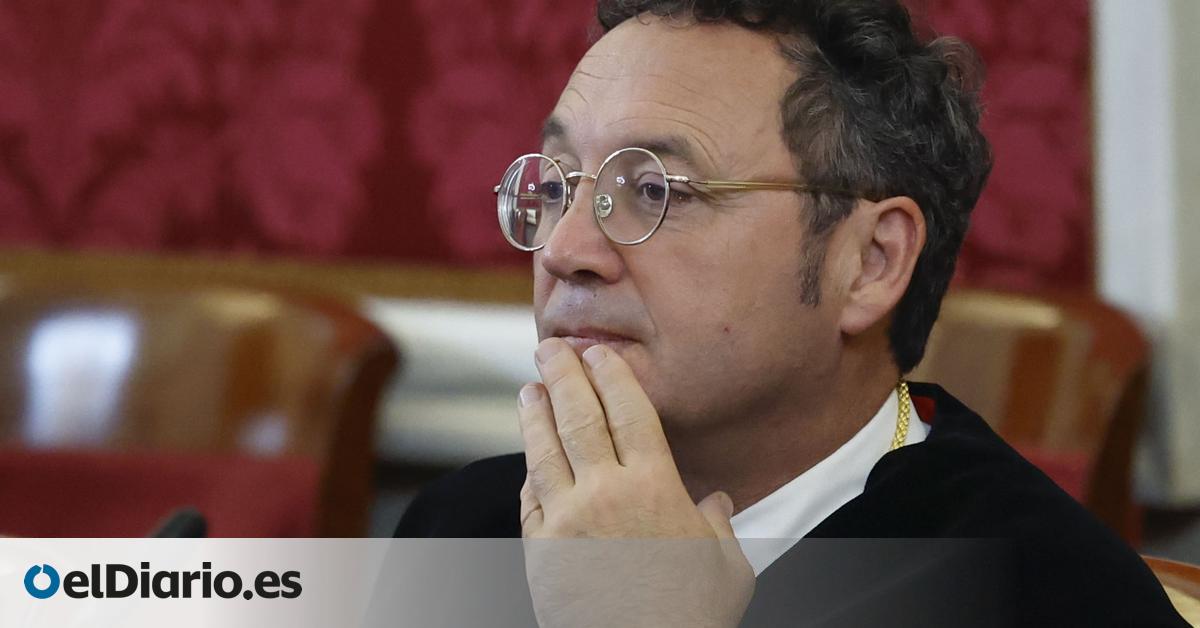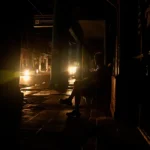
The judge of the Supreme Court, Ángel Hurtado, has rejected the request to provisionally suspend the analysis of all the messages and emails that the Civil Guard intercepted in his office at the end of October. The investigating magistrate of the case for revelation of secrets defends that the expert study of this information has been placed in the hands of the Central Operational Unit “of whose work and zeal there is no reason to doubt”, dismissing the allegation that this information will be placed available to “third parties” outside the Supreme Court.
The elite unit of the Civil Guard entered the Attorney General’s Office on October 30 by order of Judge Hurtado minutes after he placed the case under summary secrecy. A case in which he investigates whether it was Álvaro García Ortiz personally who leaked to the press the emails that the lawyer of Isabel Díaz Ayuso’s partner exchanged with the Prosecutor’s Office seeking an agreement in his case of double tax fraud. At first, the investigation revolved around a statement issued about the case by the Madrid Prosecutor’s Office, but the Supreme Court decided to analyze this alleged leak with the attorney general as a suspect.
In other writings, Álvaro García Ortiz has regretted through the State Attorney’s Office that this registry has placed in the hands of the judicial police not only communications related to the case but also information that, in his own words, “may compromise the security of the State.” ”. Both he and the provincial prosecutor of Madrid, also accused, had asked the judge to stop the analysis.
The magistrate does not share Álvaro García Ortiz’s suspicions that all this material is going to be leaked to third parties outside the Supreme Court: “It was placed in the hands of a judicial police unit, at the service of this Investigator, whose work and zeal there is no reasons to doubt.” “I do not deny that among the intercepted material there may be information of another type, which is not of interest to the investigation,” the judge acknowledges, but that also happens, he affirms, in other types of invasive procedures such as tapping a telephone conversation. “In any case, it must be remembered that the procedure is carried out under the secrecy of the summary in what it affects and that, once carried out, what is appropriate will be agreed upon, in the event that this other type of information actually appears” .
The UCO of the Civil Guard, he adds, is a police unit “to whose service it is common to go in collaboration to investigate matters such as the one at hand”, also praising “its professionalism and experience”. A unit, Hurtado says, “whose work and zeal there is no reason to doubt, as judicial practice has shown us.”
The case against the attorney general began under summary secrecy, although the judge recently allowed the parties to access their complete files to be able to appeal and respond to other appeals, although after García Ortiz had to blindly challenge the resolution that authorized the search . This Monday the instructor has limited that secrecy only to that diligence and the expert analysis of the material seized from both prosecutors. “The formation of a separate piece is agreed upon, with that condition of secret, for what is to be performed in it.” He also has the State Attorney’s Office in defense of García Ortiz.
The hoaxes of Miguel Ángel Rodríguez
The case began months ago in the Superior Court of Madrid when Alberto González Amador and the Madrid Bar Association reported that the emails that the businessman sent to the Prosecutor’s Office, in which he acknowledged his tax fraud of 350,000 euros and offered to accept a symbolic prison sentence, had been reflected irregularly in a statement from the Madrid Prosecutor’s Office. A statement with which the Public Ministry sought to deny several false information about these negotiations, spread by Miguel Ángel Rodríguez himself, Ayuso’s right-hand man in the Community of Madrid.
The case was initially directed against the prosecutor who investigated and denounced Alberto González and also against his superior, the provincial prosecutor Pilar Rodríguez. But it ended up in the Supreme Court when the proceedings were directed against the attorney general and not around the statement but because of the possible prior leak of that information to the media.
In his first writings, the attorney general has alleged before the Supreme Court that this information was already in circulation even before Álvaro García Ortiz himself requested and obtained it. The newspaper El Mundo disseminated the content of those emails and, according to the State Attorney’s Office, citing sources close to Alberto González Amador’s defense that make it unfeasible that the attorney general could be accused of revealing secrets.
Source: www.eldiario.es

